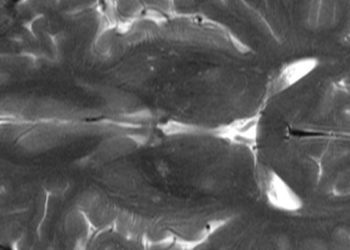Lixisenatide ineffective in reducing cardiovascular events in diabetics: The ELIXA study
1. Treatment with lixisenatide in type 2 diabetic (DM2) patients was shown to result in rates of coronary events similar to those of placebo.
2. Treatment with lixisenatide in DM2 patients offers mild clinical and metabolic benefits compared to placebo, including weight loss and lowered HbA1C.
Evidence Rating: 1 (Excellent)
Study Rundown: Patients with DM2 experience more cardiovascular morbidity and mortality than the general population. Previous randomized trials have demonstrated that improved glycemic control offers some cardiovascular benefit. In particular, GLP-1 receptor agonists have been reported to show evidence of cardioprotection in animal models and in reducing infarct size in cardiac ischemia models. Lixisenatide is one type of GLP-1 receptor agonist that has been studied but not sufficiently within the context of evaluating adequate data for cardiovascular effects. In this randomized controlled trial, researchers evaluated the effects of lixisenatide on a primary composite outcome of cardiovascular death, myocardial infarction, stroke or hospitalization for unstable angina – and found lixisenatide to be noninferior to placebo in this regard. However, the researchers also evaluated lixisenatide’s effect on clinical and metabolic parameters, noting that the treatment group had significantly lower HbA1C level and a modest weight drop over the study period compared to the placebo group.
Click to read the study, published today in NEJM
Relevant Reading: The effects of intensive glucose lowering in type 2 diabetes
In-Depth [randomized controlled trial]: In this multicenter, double-blind randomized placebo-controlled trial, researchers randomized 6068 patients with type 2 diabetes with a recent acute coronary event (within the past 180 days) into a once-daily lixisenatide treatment (n=3034) vs. volume-matched placebo (n=3034) group to evaluate cardiovascular morbidity and mortality. The composite end point for all participants was cardiovascular death, myocardial infarction, stroke or hospitalization for unstable angina. The primary end-point occurred in 406 (13.4%) lixisenatide patients and 399 (13.2%) control patients with an adjusted HR of 1.02 (95%[CI] = 0.89-1.17), with lixisenatide being noninferior to placebo (p<0.001) but not superior (p=0.81). With regards to the individual components of the primary end point, patients from the two groups did not differ significantly. Secondary outcomes such as hospitalization for heart failure occurred in 4.2% of lixisenatide patients and 4.2% in placebo patients (HR=0.96, 95%[CI]=0.9-1.11). The researchers also analyzed metabolic and clinical differences between the two groups and found that HbA1C levels were significantly lower in lixisenatide patients vs. placebo patients (-0.6% points vs. -0.2% points, p<0.001), and that lixisenatide patients lost slightly more weight than placebo patients at 12 weeks (-0.6kg vs. -0.0kg, p<0.001). In terms of adverse events, 11.4% patients in the lixisenatide group vs 7.2% placebo patients had to discontinue their treatment (p<0.001), with GI events being the most common reason for discontinuation.
Image: PD
©2015 2 Minute Medicine, Inc. All rights reserved. No works may be reproduced without expressed written consent from 2 Minute Medicine, Inc. Inquire about licensing here. No article should be construed as medical advice and is not intended as such by the authors or by 2 Minute Medicine, Inc.




